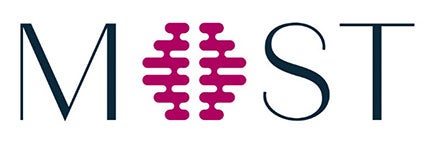
MOST: Multi-arm Optimization of Stroke Thrombolysis
Supported by: National Institute of Neurological Disorders and Stroke (NINDS)
Principal Investigator at BMC: J Rafael Romero, MD
Primary Research Contact: Katie Dam, BA (617-638-9004)
Summary
MOST is a blinded, randomized controlled adaptive, multi-arm, adjunctive-thrombolysis efficacy trial in ischemic stroke. The primary efficacy objective of the MOST trial is to determine if argatroban (100 μg/kg bolus followed by 3 μg/kg per minute for 12 hours) or eptifibatide (135 μg/kg bolus followed by 0.75 μg/kg/min infusion for two hours) results in improved 90-day modified Rankin scores (mRS) as compared with placebo in acute ischemic stroke (AIS) patients treated with 0.9 mg/kg IV rt-PA within three hours of symptom onset. Patients may also receive endovascular thrombectomy (ET) per usual care. Time of onset is defined as the last time the patient was last known to be well.
The primary safety objective of the MOST trial is to determine the safety of argatroban and eptifibatide in combination with IV rt-PA with or without ET per usual care, where safety is measured by symptomatic intracranial hemorrhage (sICH) within 36 hours from randomization.
This is a three-arm, adaptive, Phase-3, blinded, randomized controlled clinical trial at approximately 110 sites in the United States. The first 150 subjects will be randomized 1:1:1. From 150-500 patients, response adaptive randomization (RAR) will favor the treatment arm showing the greatest benefit based on accrued data. After 500 patients, one or both intervention arms may be carried forward for fixed randomization versus IV rt-PA. A maximum of 1200 patients will be enrolled.
Enrollment Criteria
Inclusion Criteria:
- Acute ischemic stroke patients
- Treated with 0.9 mg/kg IV rt-PA within 3 hours of stroke onset or time last known well
- Age ≥18
- NIHSS score ≥16 prior to IV rt-PA
- Able to receive assigned study drug within 60 minutes of initiation of IV rt-PA
Exclusion Criteria:
- Known allergy or hypersensitivity to argatroban or eptifibatide
- Previous stroke in the past 90 days
- Previous intracranial hemorrhage, neoplasm, subarachnoid hemorrhage, or arterial venous malformation
- Clinical presentation suggested a subarachnoid hemorrhage, even if initial CT scan was normal
- Surgery or biopsy of parenchymal organ in the past 30 days
- Trauma with internal injuries or ulcerative wounds in the past 30 days
- Severe head trauma in the past 90 days
- Systolic blood pressure >180 mmHg post-IV rt-PA
- Diastolic blood pressure >105 mmHg post-IV rt-PA
- Serious systemic hemorrhage in the past 30 days
- Known hereditary or acquired hemorrhagic diathesis, coagulation factor deficiency, or oral anticoagulant therapy with INR >1.5
- Positive urine pregnancy test for women of child bearing potential
- Glucose <50 or >400 mg/dl
- Platelets <100,000/mm3
- Hematocrit <25%
- Elevated PTT above laboratory upper limit of normal
- Creatinine >4 mg/dl
- Ongoing renal dialysis, regardless of creatinine
- Received Low Molecular Weight heparins (such as Dalteparin, Enoxaparin, Tinzaparin) in full dose within the previous 24 hours
- Abnormal PTT within 48 hours prior to randomization after receiving heparin or a direct thrombin inhibitor (such as bivalirudin, argatroban, dabigatran or lepirudin)
- Received Factor Xa inhibitors (such as Fondaparinaux, apixaban or rivaroxaban) within the past 48 hours
- Received glycoprotein IIb/IIIa inhibitors within the past 14 days
- Pre-existing neurological or psychiatric disease which confounded the neurological or functional evaluations e.g., baseline modified Rankin score >3
- Other serious, advanced, or terminal illness or any other condition that the investigator felt would pose a significant hazard to the patient if rt-PA, eptifibatide or argatroban therapy was initiated
- Example: known cirrhosis or clinically significant hepatic disease
- Current participation in another research drug treatment protocol - Subjects could not start another experimental agent until after 90 days
- Informed consent from the patient or the legally authorized representative was not or could not be obtained
- High density lesion consistent with hemorrhage of any degree
- Large (more than 1/3 of the middle cerebral artery) regions of clear hypodensity on the baseline CT scan. Sulcal effacement and/or loss of grey-white differentiation alone are not contraindications for treatment
Status: STUDY ON HOLD
